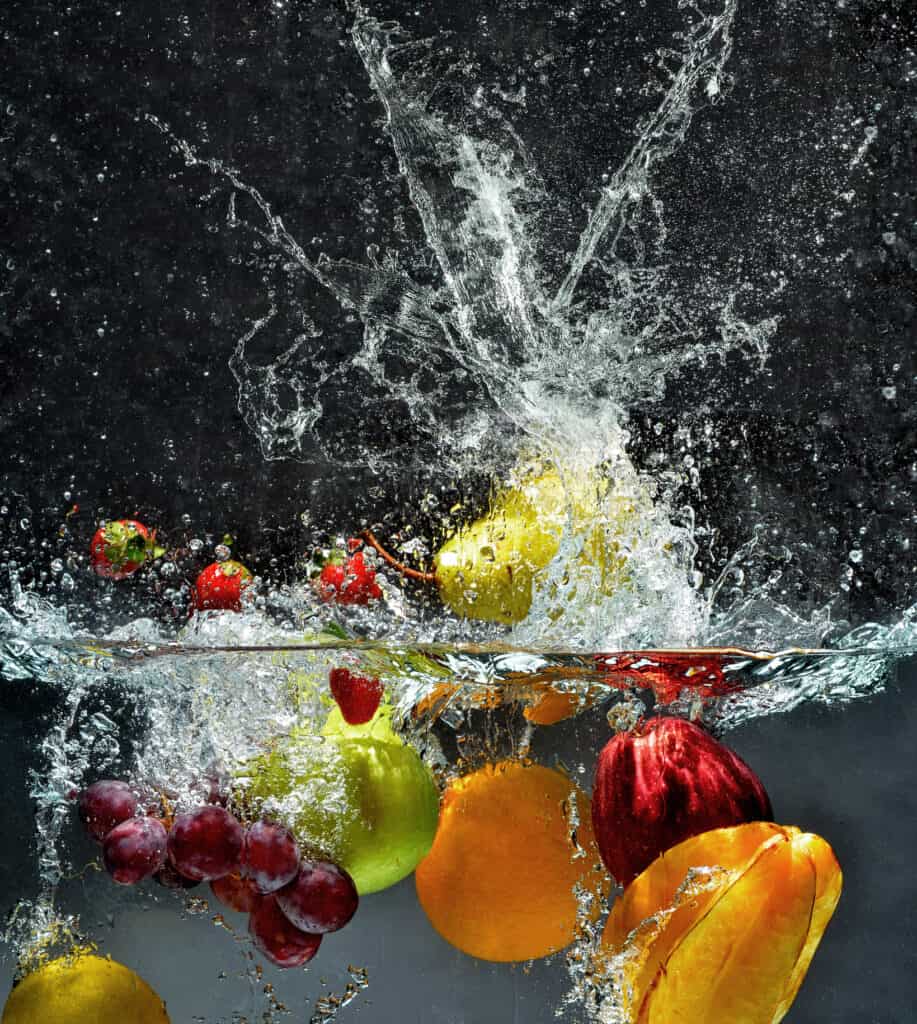Crops grown in the ground
The short answer is…maybe. For some produce, like things grown underground like peanuts, potatoes and carrots, you can wash dirt off, but washing pesticides off will be tough. Those crops take in what’s in the soil and incorporate it into the root. Obviously, it would not be possible to get inside a potato! So it’s not always possible to wash pesticide off food.
Does pesticide get inside fruits and vegetables?
Previous studies have shown that pesticides that are applied to the produce surface can penetrate into the produce over time. There are different types of pesticides and the systemic pesticides can penetrate faster and deeper into produce than those that are non-systemic.
For other crops, where pesticides cling to the surface, it’s possible to wash off some of the pesticide. Some pesticides are very difficult to remove. Pesticides and fungicides used on citrus can be especially stubborn. Imported citrus is very troublesome-their rules about use of chemicals is much more lax than ours.
Citrus and pesticide
Much of the orange juice consumed in the US is a mix of domestic and imported oranges. We really don’t know how oranges are washed and most washing method don’t remove much of the chemicals from oranges. My suggestion would be to wash all oranges before handling them, especially when giving them to kids. As for lemons, I only zest organic lemons unless I just can’t find them. Lemons in restaurant drinks may not be washed at all!
The best method for washing produce
I don’t believe that washing with water is as effective as any other method in reducing pesticides in produce. From the research I’ve done on various methods, the most recommended way is to add a couple of teaspoons of baking soda to two cups of water and let the produce soak for 15 minutes. This is from research out of the University of Massachusetts in 2020. Even this method won’t remove 100% of the pesticide residue. Peeling will always help, but wash the fruit first.
Summary:
1. Refer to the Dirty Dozen from the Environmental Working Group to find out which produce items are the most heavily treated with chemicals.
2. Avoid produce from China or Central and South America, where standards for acceptable levels of pesticides and other poisons are lower. Other countries may have lower standards than the US, From my research, Canada and the European Union are more trustworthy than the US.
3. Wash produce with baking soda and water as described above.
4. Don’t use detergent-it may actually sink more chemicals into peels.

